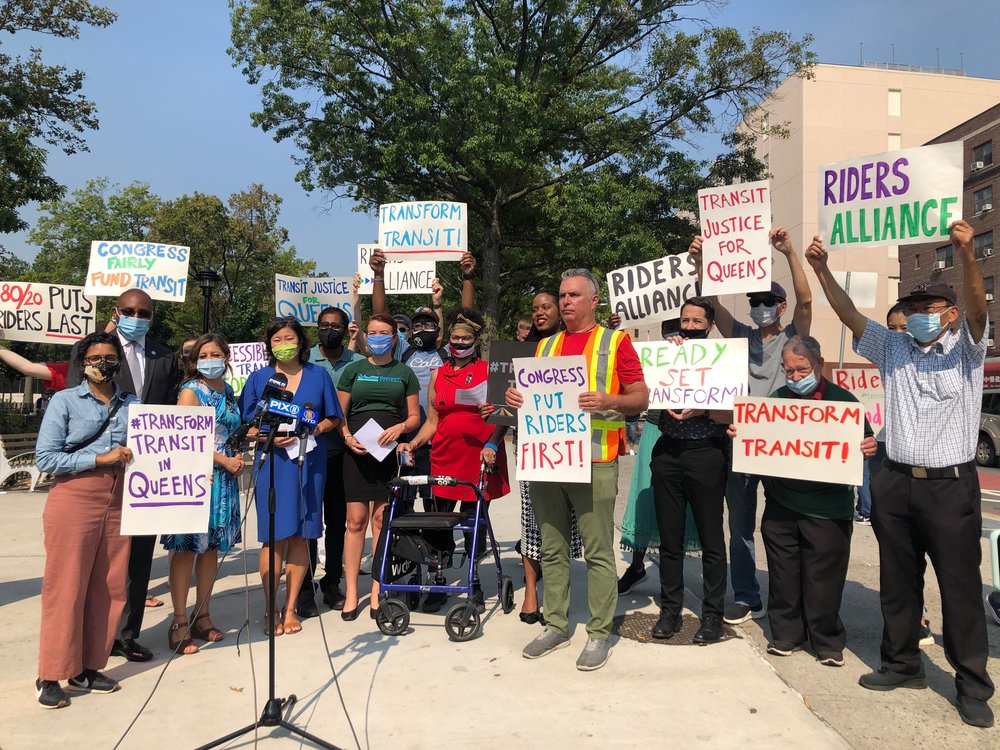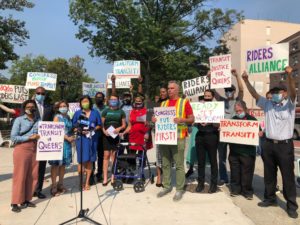By Evan Triantafilidis
State and local officials joined transit advocates in a call for transportation equity, urging Congress to address systemic inequalities which could lead to expanded and more frequent services.
Standing outside the Elmhurst Avenue M/R Station last week, Congresswoman Grace Meng stressed the importance of investing in not only the nation’s infrastructure, but specifically in the city’s subways and buses.
Meng recently co-sponsored the Stronger Communities Through Better Transit Act, which would establish a program to provide grants to eligible recipients for operating costs and capital improvements realted to public transportation.
If passed, the Metropolitan Transportation Authority (MTA) would receive $3 billion annually, said Meng, which could help avert future fare hikes and service cuts.
The legislation adds $10 billion in federal funds on top of the bipartisan infrastructure bill passed by the Senate last month.
“Throughout the last few weeks, we’ve seen families suffer through the aftermath of Hurricane Ida and the floods that came with it,” said Meng. “This is also a community that suffered and was severely impacted by the COVID-19 pandemic.”
With Elmhurst Hospital serving as the backdrop for the rally, local officials said Queens was specifically hard hit by the pandemic, and many essential workers relied on public transportation to get to their jobs.
Borough President Donovan Richards said the health of his constituents and public transportation go hand in hand.
“We often say that transportation is the great equalizer,” said Richards. “Today is about making sure the working class has a seat at the table, and that we’re not just simply building back.”
“There are people who are saying we should be going back to normal,” he added. “Well, normal never worked for the people of Queens County, that’s why the pandemic hit us harder. We need a new normal where transportation equity is front and center.”
Renae Reynolds, executive director of the Tri-State Transportation Campaign, said for every $1 billion invested in public transit, 50,000 jobs are created.
“Tens of millions people in the U.S. rely on public transit to get to work every day, generating trillions of dollars in economic activity,” she said. “Every single dollar invested in transit offers a five-to-one return.”
Reynolds also pointed out that the bipartisan-passed infrastructure bill includes $25 billion in subsidies to the fossil fuel industry.
“Funding for public transit in the bipartisan infrastructure bill that passed the Senate is insufficient to truly rebuild an economy that works for everyone,” she said. “And one that is just as environmentally stable.”




